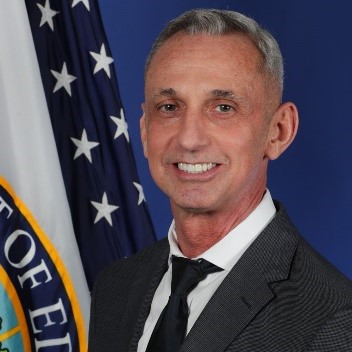Back to School!
In This Issue:
From the Director

Message from Acting OSEP Director, Dr. David Cantrell
Dear Stakeholders!
Yesterday we celebrated Labor Day, a day to recognize the contributions and achievements of American workers. I want to take this moment to thank and recognize my colleagues, our grantees, educators, and other stakeholders who work tirelessly each day to help improve the lives of children with disabilities and their families.
On August 2, 2021 the Department released the “Return to School Roadmap” which “provides key resources and supports for students, parents, educators, and school communities to build excitement around returning to classrooms this school year and outlines how federal funding can support the safe and sustained return to in-person learning.” As a part of the Roadmap rollout the Office of Special Education and Rehabilitative Services (OSERS) released a letter to its state and local partners reiterating its commitment to ensuring children with disabilities and their families have successful early intervention and educational experiences in the 2021–2022 school year.
In addition, OSERS released the Q&As document on Child Find Under Part B of the Individuals with Disabilities Education Act. This Q&A is the first in series of guidance which reaffirms the importance of appropriate implementation of IDEA’s child find obligations, which requires the identification, location, and evaluation, of all children with disabilities in the states. An effective child find system is an ongoing part of each state’s responsibility to ensure that FAPE is made available to all eligible children with disabilities.
We continue to be hopeful for a successful school year and commit to providing our continued to support to our educators, parents, and families to help improve outcomes for infants, toddlers, children and youth with disabilities.
David Cantrell, Ph.D.
Acting Director
Office of Special Education Programs
|
ED Updates
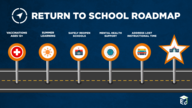
Return to School Roadmap
The Return to School Roadmap by the U.S. Department of Education (Department) is a resource to support students, schools, educators, and communities as they prepare to return to safe, healthy in-person learning this fall.
|
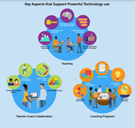
How Coaches Can Support Powerful Learning with Technology Blog Series
The Office of Educational Technology (OET), offers the “How Coaches Can Support Powerful Learning with Technology Blog Series” that explores three key themes to build a more equitable and resilient education system:
- Instruction that effectively and consistently leverages technology;
- Coaching that equips and empowers teachers with the professional learning needed to stimulate powerful digital learning for their students; and
- Systems that foster coaching for meaningful technology use in instruction.
The first blog is now available here.
|
Announcements
State Performance Plans / Annual Performance Reports (APRs)
All APRs were posted on the IDEA Website. During the August 12, 2021 OSEP Monthly Technical Assistance Call information on the upcoming APR submission (due February 1, 2022) and the impact of COVID on data was presented. The recording and materials have been posted.
As of August 27th, the EDFacts Partner Support Center email changed to edfacts@ed.gov.
IDEA Part B/C Grants
The FFY 2021 IDEA Part B and C grant award letters are now posted on our website. Also, a fact sheet regarding the IDEA American Rescue Plan (ARP) funds is posted on the IDEA ARP page along with other resources.
If you have any questions regarding the use of IDEA funds, please contact your OSEP State Lead.
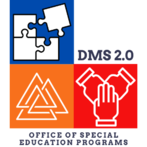
Differentiated Monitoring and Support
OSEP’s next technical assistance call on DMS is scheduled for September 23, 2021, as a part of the DMS 2.0 activities. OSEP’s last Monthly Technical Assistance call in August highlighted updates to the DMS 2.0 engagement timeline with States, and next steps for Cohort 1 States beginning again in October 2021. The call also reviewed some of the recently released Back to School Guidance. A recording of the call will be posted on the OSEP Monthly TA Call page.
|
Recommended Resource

Back-to-School Resources from the IRIS Center
This newly revised IRIS Module reviews the major components of a comprehensive behavior management plan (including rules, procedures, and consequences) for elementary classrooms (a secondary version is coming soon!).
The module is a companion to Classroom Behavior Management (Part 1): Key Concepts and Foundational Practices, which provides the groundwork for setting up a classroom behavior management plan.
The IRIS module Parents: Supporting Learning During the COVID-19 Pandemic has a new page about the return to in-person learning. Some of the topics covered include: worries about health and safety; possible behavior issues; separation anxiety; and nervousness about social situations.
|
Featured Resources

2021 Special Olympics Unified Champion Schools Program
Unified Champion Schools (UCS) was recently funded for its 14th year to support schools (pre-K – university) to promote meaningful social inclusion by bringing together young people with and without Intellectual and Developmental Disabilities (ID/IDD) to create accepting school environments. The program utilizes three interconnected components: unified sports; inclusive youth leadership; and whole-school engagement. As the program continues to grow, there are two initiatives UCS wants to highlight:
Unified Classroom —
Provides fun, engaging activities to students that highlight social emotional skill development and inclusive practices and aligns with learning standards across all grade levels.
Since launching in 2020, Unified Classroom has had over 1.2 million views across Facebook and Instagram since launching in 2020, clearly satisfying the growing need during the past school year for robust and healthy virtual and hybrid classroom-friendly lessons that are fully inclusive.
Unified Champion City Schools initiative —
will develop partnerships with several low-income schools in city school districts to implement the Unified Champion Schools strategy. The City Schools initiative will work with communities to empower youth to be change agents within their schools, voices for their communities, and document the impact of programming on social emotional learning, and opportunities for diversity in friendships and interactions.
|
 |
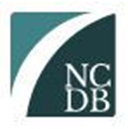
Availability for Learning Resources
The National Center on Deaf-Blindness has two useful resources: Optimizing Availability for Learning, a practice guide, outlines the ways practitioners can optimize the readiness of a child with deaf-blindness to engage with others, pay attention, and absorb information. It defines for technical assistance providers, coaches, and practitioners the essential components of this important practice. A separate info topic webpage called Availability for Learning provides resources on how to implement these strategies.
|
 |
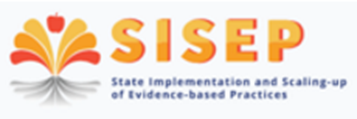
SISEP Center Launches Video Series and Podcast
The State Implementation and Scaling-Up of Evidence-Based Practices (SISEP) Center at the UNC Frank Porter Graham Child Development Institute has been hard at work creating new multimedia resources for educators and implementation practitioners.
One of these new resources is the “Voices from the Field” video series, hosted on the SISEP Center’s YouTube channel. These videos share the perspectives of active implementers in the field.
The SISEP Center has also launched a new podcast that shares tips for educators every week. The podcast is called “Implementation Science for Educators” and can be found on multiple streaming platforms. The podcast aims to provide educators with five-minute episodes that they can easily listen to during a break in their busy schedules.
|
 |

New Self-Paced Training Modules on Intensive Intervention
The National Center on Intensive Intervention (NCII) in partnership with the PROGRESS Center has launched a learning module library that houses self-paced learning modules intended to build knowledge around intensive intervention. NCII has released and revised three modules that provide an introduction to intensive intervention, define the
About the Author
David J. Cantrell, Ph.D., a member of the U.S. Government Senior Executive Service, serves as the acting director in the Office of Special Education Programs (OSEP) within the Office of Special Education and Rehabilitative Services, at the U.S. Department of Education (Department). In this role, he is responsible for overseeing administration of the Individuals with Disabilities Education Act (IDEA), which authorizes formula grants to States under IDEA Part B and to lead agencies for the infants and families program under IDEA Part C. IDEA also authorizes discretionary grants under IDEA Part D to institutions of higher education and other non-profit organizations to support grants for state personnel development, technical assistance and dissemination, technology, and parent training and information centers.
Read next
News From Others
Stakeholder Groups Urge Caution Regarding AI Use
Legislation
House Subcommittee Moves FY 2026 Labor-HHS-ED Bill Forward
USED & White House
DOJ Releases Guidance on DEI
| |


























